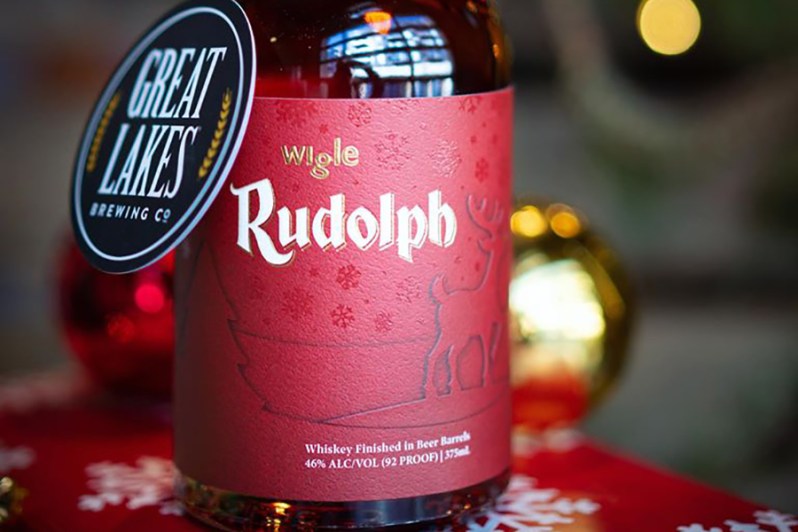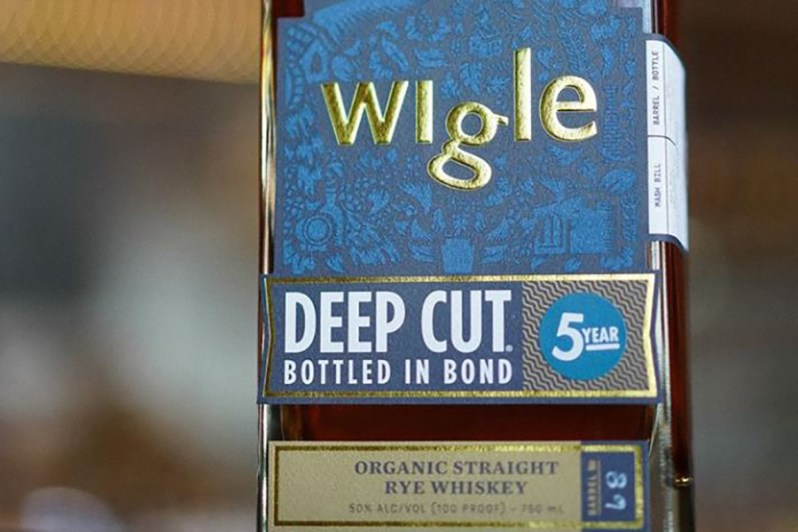Wigle Whiskey, a craft distillery located in Pittsburgh, has a bunch of new whiskeys and other spirits that are out just in time for the holidays.
First up is one of the most exciting, Deep Cut Bottled in Bond Rye. This organic rye whiskey was made from a mash bill of 65% rye, 18% wheat, and 17% barley, bottled at 100 proof as required by law, and aged for five years in new charred oak barrels. Then there is Rudolph Whiskey, a straight wheat whiskey that was aged in Christmas Ale barrels from Great Lakes Brewing Co., giving it a bit of spice.

Three organic single barrel bourbons have also been bottled — two are Yellow Corn Bourbon, one is the Wapsie Valley Corn Bourbon. If you are looking for a bottled cocktail, Wigle’s Bottled Old Fashioned is available now, made with Wigle Straight Bourbon, Pomander
The use of organic grains is something that is key to the identity of Wigle Whiskey, and according to co-owner Meredith Meyer Grelli there are three factors that underscore the importance of this. The first is quality. “We’ve spent the past 10 years building a regional supply chain around organic grains and agricultural products,” she told The Manual, “because we’ve found we get more flavor and less junk.”

The second is the health of local farms and the environment. She said that Wigle goes through about 365,000 pounds of grain annually, so they try to make as small an environmental impact as possible. Finally, the health of the staff is important. “We mill all of our grains on-site, which is a dusty process,” she said. “We hope our production team is breathing in as little pesticide residue as possible during this nearly daily process.”
Jill Harries, national PR manager for Wigle and Threadcare Cider, added that the entire core range is organic, and that only using a barrel to finish a spirit that held a non-organic spirit or using a locally sourced fruit that isn’t organic might interfere with producing an organic spirit. “While so much of each spirit’s inherent character and quality is determined by decisions made during production and aging,” she said in an email, “we consider influences like farming and treatment of raw ingredients just as much a part of the final product.”
The question remains as to whether using organic grains actually affects the flavor of the spirit, or if it’s really an attempt to lessen the potential damage on the soil and water. For Harries, there is a case to be made for the former. “While there’s an argument to be made that the distillation process strips grain of these more subtle flavor influences, there’s just as strong a case to be made for organically farmed grains existing further outside an increasingly monotonous agriculture landscape,” she said. “We believe this is a much more interesting conversation, and that it paves the way for unique expressions of raw materials.”
Ultimately, for Wigle, the decision to use as many organic ingredients as possible is not just about flavor but is part of an overall ethic and responsibility to help preserve our planet. “It’s about exercising conscientious purchasing power,” said Harries, “about the quality of our raw ingredients and spirits, and about decisions that could potentially contribute to a more ethical environmental footprint.”



